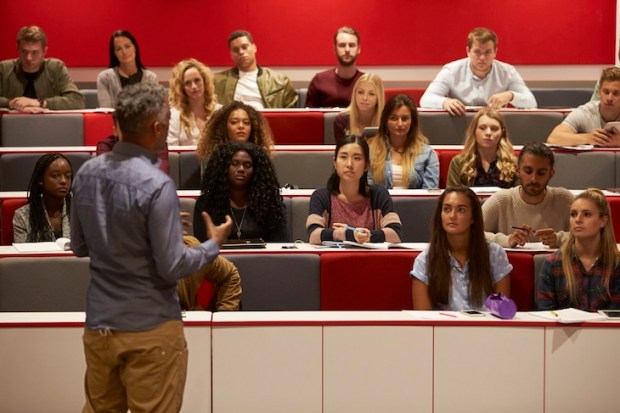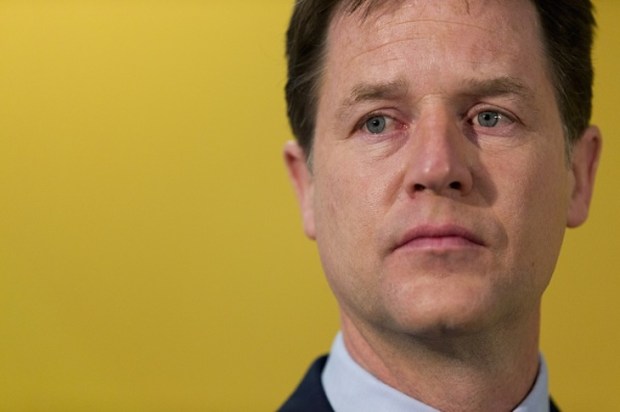Some people are gay. Get over it’ — this was the slogan for a campaign against homophobia. A series of YouTube videos follows the same approach: a cameraman asks people on the street, ‘When did you choose to be straight?’ The subtext — that sexual orientation is innate, not chosen — has undoubtedly succeeded in promoting tolerance.
The only strange thing here is that the argument leans heavily on genetic determinism which in almost any other field of debate is anathema to most liberal opinion. Imagine putting up a poster with the legend ‘Some children are brighter than others. #Truth.’ Or ‘Women are crap at parallel parking. Just live with it.’ A more principled argument for tolerance is that your sexual behaviour, when harmless to others, is your own affair. But in this one instance everyone seems happy to accept the idea of nature over nurture — even though in other domains it would be unsayable.
This inconsistency bears out findings from the American psychologist Jonathan Haidt that our political and moral views are formed unconsciously in the brain. We then cast about for any plausible argument to retrofit to our instinctive response. The rational brain, according to Haidt, ‘thinks it’s the Oval Office when it’s really the press office’. It is a kind of neurological Alastair Campbell, cutting and pasting facts from any source to support decisions made for unrelated reasons.
With this in mind, I agree with Martha Gill, my opposite number at the New Statesman, when she remarks that it is a bit disingenuous for the left to support immigration by arguing that it contributes to economic growth. There are ethical arguments to support immigration; why not use these, she asks? You might also wonder why the left is suddenly treating economic growth as the ultimate good — after all, you could make a similar case that you could boost GDP by means of a six-day working week, the abolition of paid holidays and bringing back child labour to the mines.
So emotionally charged is the debate about immigration that I had lost hope of anyone writing anything new about it. I therefore had pretty low expectations when I opened Exodus: How Migration Is Changing Our World by Paul Collier, not least because the author is a self-proclaimed economist and has a beard.
Yet it is a brilliant book. It helped that the foreword mentioned several of my heroes, including Haidt, Daniel Kahneman, George Akerlof and Rachel Kranton. Collier, remarkably, manages to describe what Scott Fitz-gerald called ‘the whole equation’. Migration is not merely treated in terms of narrow economic models, but also through network theory, psychology, ethics, trust, co-operation, culture and evolutionary game-theory.
The book covers four areas almost never mentioned in the debate. He suggests the pace of migration to join any diaspora may accelerate exponentially when an existing diaspora is slow to assimilate — so there may be no natural equilibrium. He asks whether using lotteries rather than familial ties might be fairer in deciding who can migrate. He considers the effect of new migrants on the fortunes of recent migrants. And he investigates the costs human emigration imposes on the countries migrants leave behind.
This last question deserves much more discussion. Every immigrant is also an emigrant, yet we focus on arrivals not departures. It amuses me when Americans romanticise the Pilgrim Fathers as brave pioneers, seeking fulfilment in a new world. I suspect their former neighbours saw them as a bunch of joyless arseholes who found 17th-century England insufficiently puritanical for their dismal tastes — ‘We’re well shot of them, frankly.’
Got something to add? Join the discussion and comment below.
Get 10 issues for just $10
Subscribe to The Spectator Australia today for the next 10 magazine issues, plus full online access, for just $10.














Comments
Don't miss out
Join the conversation with other Spectator Australia readers. Subscribe to leave a comment.
SUBSCRIBEAlready a subscriber? Log in